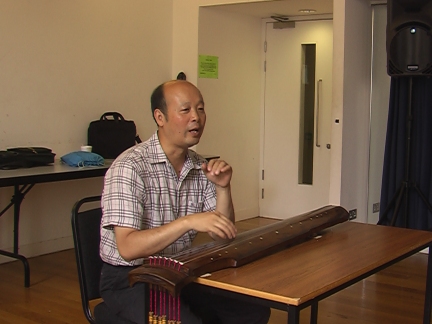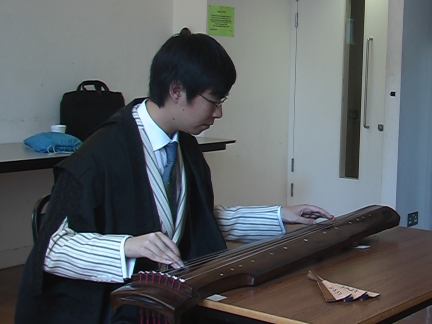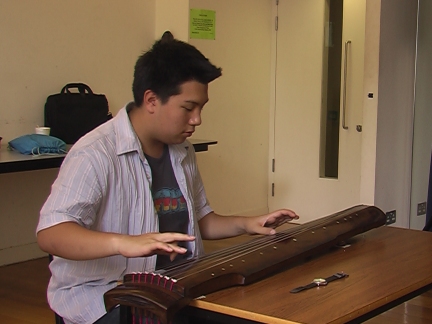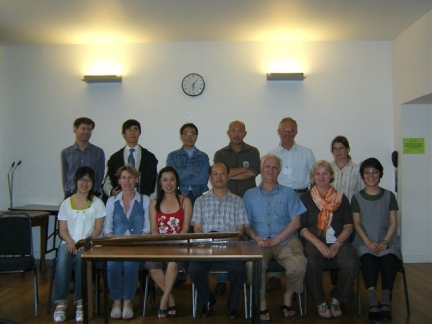 |
 |
 |
| Zeng Chengwei discussing Gu Guan Yu Shen |
Charlie Huang playing Xiang Fei Yuan | Joshua
Petkovic
playing Jiu
Kuang |
Copyright the London Youlan Qin Society, 2008. All
rights reserved.
 This, the 33rd
meeting of the London Youlan Qin
Society, was held at the Royal Aademy of Music in London, during the
Chinese Music Summer School.
This, the 33rd
meeting of the London Youlan Qin
Society, was held at the Royal Aademy of Music in London, during the
Chinese Music Summer School. |
 |
 |
| Zeng Chengwei discussing Gu Guan Yu Shen |
Charlie Huang playing Xiang Fei Yuan | Joshua
Petkovic
playing Jiu
Kuang |
Copyright the London Youlan Qin Society, 2008. All
rights reserved.